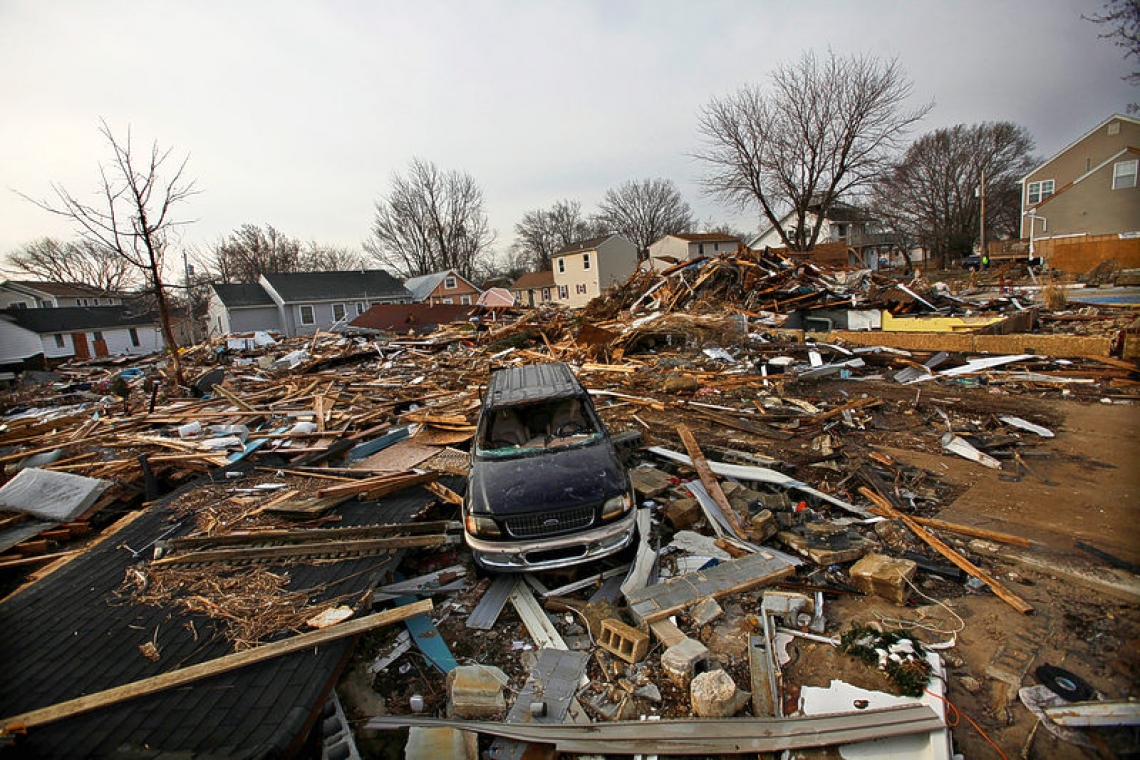NEW YORK--As the June 1 start of hurricane season inches nearer, U.S. emergency managers are gearing up for the possibility of a more active than normal storm season as the country battles the coronavirus pandemic at the same time.
The combined threat could make managing both crises more difficult as the stretched-thin Federal Emergency Management Agency (FEMA) and local emergency authorities grapple with the country's worst health and economic crisis in decades, they say.
"When you have a crisis of this magnitude, if you have another crisis, a hurricane-level crisis, even a terrorist attack or something like that right now, it could cause a lot of challenges," said Jared Maples, director of New Jersey Homeland Security.
"It just makes it that much harder," he said.
A typical Atlantic hurricane season sees six hurricanes, according to the U.S. National Oceanic and Atmospheric Administration, the U.S. scientific agency responsible for weather forecasts. But of the more-than-dozen annual forecasts published, nearly all anticipate that the upcoming hurricane season will be busier than usual.
Social distancing practices to prevent the spread of COVID-19 are likely to complicate efforts to squeeze thousands of people into spaces that typically serve as shelters in the event of an evacuation, such as school gymnasiums and sporting arenas, experts say.
Widespread evacuation orders are used as a last resort, but if families were forced to evacuate, coastal states such as New Jersey are considering renting more hotel rooms than in years past to accommodate more distancing, Maples said. He said the pandemic would not alter officials' decisions on whether or not to evacuate shorelines if a storm warranted that response.
Jeroen Aerts, a professor of environmental risk management at the VU University in Amsterdam and an adviser to New York City, warned that people will need to adhere to evacuation orders "more seriously" with rescue teams stretched thin.
"People are very much on their own," Aerts warned. "That means, as an individual, you have to really carefully judge the warning issues that the government puts out."
FEMA this year will release guidelines for local governments on how to handle the upcoming hurricane season alongside the health crisis, according to a FEMA spokesperson. The agency also said it has created a second National Response Coordination Center that is tasked with coordinating all non-COVID-19 disaster responses.
But cash-strapped city and state officials questioned whether the federal agency has the resources to handle hurricane season on top of the coronavirus or if local governments will be left to bear the financial burden of both crises. "There are going to be some very difficult times ahead and it’s imperative that we make some smart financial decisions to help us through this crisis," said Houston Controller Chris Brown.
Nearly half of the city of Houston's $20 million disaster relief fund has already gone to deal with the coronavirus and powerful Hurricane Harvey in 2017, he said. He is hopeful the city will get the money it needs as part of another round of federal coronavirus relief legislation.
Since March, the U.S. Congress has passed bills allocating nearly $3 trillion to combat the pandemic, but only about $150 billion in aid has been set aside for states and cities.







